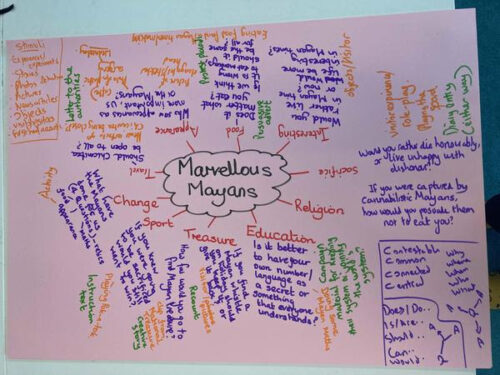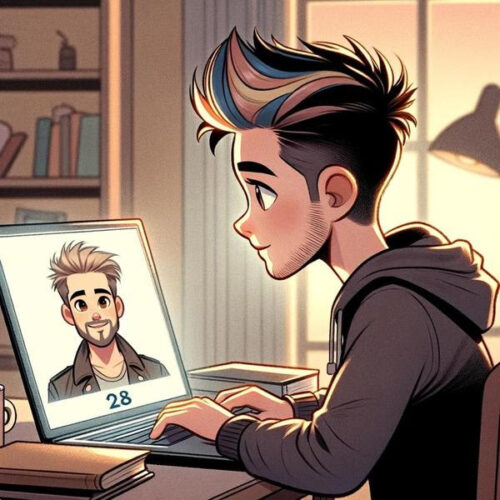An article in Guardian, “AI researchers build ‘future self’ chatbot to inspire wise life choices” is the inspiration for a freshly-written story that takes that idea to the limit . If you could talk to “Future Yous” about how your life choices now affect them, would it help you make better choices?
FIrst, an announcement about the first course we’re running jointly with SAPERE in our collaboration to embed P4C in the Curriculum.
P4C Through The Curriculum Masterclass
Online, June 20th, July 4th and 11th 16:00-17:30 (UK time)

Do you value P4C but struggle to make time for it in a crowded curriculum? Would you like to start the next academic year with philosophical questions planned into your key topics and texts for the year, so that P4C supports your curriculum rather than being “another thing to do”?
Held over three 90-minute Zoom sessions, this course, aimed at teachers who have already received introductory P4C training (such as a day with us or a SAPERE Level 1 course) will equip you to take a lead at your school in identifying the opportunities for philosophy across your school.
ChYous Your Future: Talking to Yourselves

Harvey opened his videomail app and sighed. He looked at the subject lines.
“It was a fun three years, but sometimes I wish life was easier now.”
“Now you’ve done it!”
“Great! I was expecting to be retired.”
Harvey had just decided to switch his university application from medicine to music. His parents, who were quite anxious, mainstream people, had been giving him a hard time for passing up on a higher-paying, secure career in favour of something that was less of a sure thing. And now, he was getting angry messages from himself.
An article in Guardian talks about a project at MIT to use a custom version of ChatGPT to enable young people to chat with a version of their older self. “With a profile picture that is digitally aged to show youthful users as wrinkly, white-haired seniors, the chatbot generates plausible synthetic memories and draws on a user’s present aspirations to spin tales about its successful life.”
The attached story here projects that idea to an extreme (but one we can expect to reach within five years at most).
Questions
You can use the story to generate questions, or here are some I find interesting:
- How much should you think about the future when taking a decision in the present?
- Should each year of your life matter equally to you, or are some years more important than others?
- If you were choosing between two possible lives and could only live one, how would you choose?
- Is it possible to end up living the wrong life?
- What makes a good life?
- Is it worth risking a worse life for the possibility of a much better life?
- How much should you be willing to sacrifice in the present to make things better in your future?
- How much should you be willing to sacrifice things in the future to make things better in the present?
Best wishes,
Tom and Jason